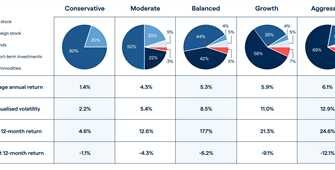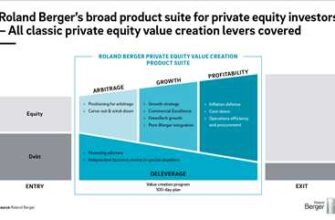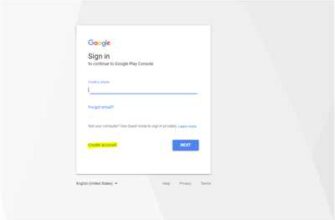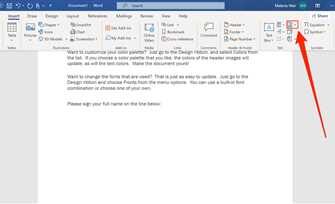
Having a budget is a crucial tool when it comes to managing your finances. It allows you to have a clear understanding of where your money is coming from and where it’s going. Whether you’re trying to save money or simply spend it more wisely, a budget helps you track your expenses and stay on top of your financial goals.
First and foremost, you need to determine your sources of income. Take into account your regular paycheck, any side hustles, or passive income streams. Once you have a clear picture of how much money you have coming in each month, you can start breaking down your expenses.
Start by listing all of your monthly bills and subscriptions. This includes everything from rent or mortgage payments to utility bills, internet fees, and gym memberships. Make sure to include any credit card payments or loan installments as well. By having a clear understanding of what you need to pay each month, you can better prioritize your spending and avoid any surprises.
Next, set limits for your various spending categories. This can be as specific as how much you’re willing to spend on groceries each week or as broad as how much you want to allocate for entertainment per month. By setting these limits, you can keep yourself accountable and avoid overspending in certain areas.
It’s a good idea to regularly review your budget to see if it’s still aligning with your financial goals and needs. As circumstances change, you may find that you need to adjust your budget accordingly. For example, if you receive a raise at work or if your expenses increase, you may need to allocate more money towards savings or adjust your spending limits.
Finally, sticking to your budget may be tough at first, but it’ll get easier with time and practice. Avoid unnecessary expenses and be conscious of your spending habits. Consider cutting down on non-essential items or finding cheaper alternatives. Additionally, explore third-party apps or tools that can help you track your spending and show you areas where you can save money.
Remember, budgeting is not about depriving yourself of the things you enjoy, but rather about making informed decisions and staying on top of your financial wellness. By having a budget in place, you can have peace of mind knowing that you’re in control of your money and working towards your financial goals.
How to do a budget

Creating a budget is an essential skill for managing your finances. It helps you keep track of how much money you have, how much you spend, and why. A good budget also helps you limit unnecessary spending and save for the things that are most important to you. Whether you’re trying to pay off debt, save for a down payment on a home, or just want to be more financially stable, having a budget is a great way to achieve your goals.
The basics of budgeting are fairly simple. Start by listing all of your monthly income and expenses. This includes things like your paycheck, any side income, and any regular bills you have to pay. Be as precise as possible when listing these items, as a precise budget will give you a clearer picture of your financial situation.
Next, take a look at your spending habits. Review your bank statements and credit card statements to see exactly where your money is going. You may be surprised to find subscriptions or regular purchases that you forgot about or don’t use anymore. Cutting back on these expenses can help you save a significant amount of money each month.
Once you have a clear understanding of your income and expenses, it’s time to set a budget. Decide how much you want to spend on each category, such as groceries, transportation, utilities, entertainment, and savings. Be realistic but also challenge yourself to cut down on unnecessary expenses. Stick to your budget as much as possible, and if you find yourself overspending in one category, adjust your budget accordingly.
It’s worth mentioning that budgeting doesn’t have to be hard or feel restrictive. It’s all about finding a system that works for you and your needs. There are various budgeting apps and third-party tools available to help you track your expenses and stay on top of your budget. Find one that suits your preferences and make use of it to simplify the process.
Another helpful tip is to review your budget regularly, preferably on a monthly basis. Check if you’re still on track and make adjustments as needed. Life circumstances and priorities can change, so it’s important to be flexible and adaptable with your budget.
When it comes to budgeting, it can be tempting to treat yourself and buy whatever you want, especially if you have the money for it. However, remember that long-term financial stability is more important. If you want to save for a big purchase, like a car or a mortgage down payment, it’ll be much easier if you stick to your budget and avoid unnecessary spending.
Lastly, keep in mind that budgeting isn’t just about cutting back on expenses. It’s also about prioritizing your spending and allocating your money to the things that are most important to you. If you value experiences, for example, make sure to budget money for travel or sports activities. By doing so, you’ll be able to enjoy the things you love while still being fiscally responsible.
Remember, everyone’s budget will look different, and that’s okay. The most important thing is to find a budgeting approach that works for you and helps you achieve your financial goals. With a little discipline and regular review, you’ll be on your way to financial success.
Why do I want a budget
A budget is a financial plan that helps you organize and track your income and expenses. It is a tool that provides you with a clear overview of your financial situation and helps you make informed decisions about how to allocate your money.
There are several reasons why you might want to create and stick to a budget:
- Control your spending: A budget allows you to see exactly how much money you have coming in and going out each month. By tracking your expenses, you can identify areas where you are overspending and make adjustments to stay within your means.
- Save money: A budget helps you prioritize your spending and set aside money for savings. Whether you have short-term goals, like a vacation or a new car, or long-term goals, like retirement or buying a house, budgeting helps you save money consistently and reach your financial goals.
- Plan for the future: By having a budget, you can plan for future expenses and be prepared for unexpected financial challenges. Whether it’s an emergency fund, insurance, or saving for retirement, budgeting helps you anticipate and prepare for future needs.
- Reduce debt: If you have debts like credit card bills or a mortgage, a budget allows you to see how much you can allocate towards paying off those debts. It helps you prioritize debt payments and shows you how much progress you are making towards becoming debt-free.
- Gain financial freedom: Budgeting gives you control over your money and helps you achieve financial freedom. It allows you to make conscious choices about how you spend your money and live within your means. When your financial situation improves, you have more freedom to pursue your passions and do the things you love without worrying about money.
Whether you’re trying to save for a specific goal, pay off debt, or simply improve your financial well-being, a budget is an essential tool to help you achieve your objectives. It provides a roadmap for your money and empowers you to make better financial decisions. So, if you want to take control of your finances and improve your overall financial health, creating a budget is a good place to start.
Budget basics
Budgeting is a fundamental skill that everyone needs to have in order to manage their finances effectively. Whether you’re making a lot of money or just getting by, having a budget can help you lower your expenses, save more money, and achieve your financial goals. In this section, we’ll show you the budget basics and how to use a budget to achieve financial success.
One of the first things you need to do when creating a budget is to determine your monthly income. This includes all the sources of income you have coming in regularly, like your monthly salary or wages. It’s important to be precise and include all sources of income so you can get a good sense of how much money you have to work with each month.
Next, you’ll want to review your monthly expenses and bills. This includes everything from your mortgage or rent payment to your utility bills, insurance premiums, and any other regular payments you have to make. It’s important to be honest with yourself about your spending habits and cut out any unnecessary expenses that may be coming up regularly. This could include things like magazine subscriptions, dining out, or even your daily coffee treats.
Once you have a clear picture of your income and expenses, it’s time to create a budget. A budget is simply a plan for how you will spend your money each month. It helps you allocate your income to meet your financial needs without overspending. You can do this through a simple spreadsheet or by using a third-party budgeting tool or app.
| Category | Amount |
|---|---|
| Housing (Rent/Mortgage) | $xxxx |
| Utilities (Electricity, Water, etc.) | $xxxx |
| Insurance (Health, Car, etc.) | $xxxx |
| Debt Repayments (Credit Cards, Loans, etc.) | $xxxx |
| Transportation (Gas, Public Transit, etc.) | $xxxx |
| Groceries | $xxxx |
| Entertainment | $xxxx |
| Emergency Fund | $xxxx |
A budget helps you see your financial situation clearly and makes it easier to save money and stick to your financial goals. It allows you to prioritize your expenses and make sure that your spending aligns with your priorities. By tracking and reviewing your budget regularly, you can make adjustments and find ways to save more money or cut down on unnecessary expenses.
Using a budget can be tough at first, especially if you’re used to spending without much thought. However, over time, it becomes a habit and helps you develop good spending habits. It’s important to treat your budget as a guide and not a rigid rule. You can always make adjustments depending on your needs and circumstances.
Another benefit of budgeting is that it helps you build an emergency fund. By setting aside a specific amount for emergencies each month, you can be prepared for unexpected expenses and avoid going into debt. It also helps you plan for big expenses like vacations or major purchases, so you can save up for them in advance.
In conclusion, budgeting is a vital tool that can help everyone achieve their financial goals. It ensures that your money is being used wisely and helps you make informed decisions about your spending. Whether you’re trying to pay off debt, save for a house, or simply manage your day-to-day expenses, having a budget is worth the effort.
Stick to a lower credit card limit
One effective way to stick to your budget is by setting a lower credit card limit for yourself. This will help you control your spending and prevent you from going overboard with your purchases.
Start by reviewing your monthly bills and expenses to determine how much money you need to allocate for each category. Once you have a clear understanding of your monthly needs, you can decide on a lower credit card limit that aligns with your budget.
It’s worth noting that having a lower credit card limit doesn’t mean you have to cut down on all your expenses. It simply means that you need to be more mindful of your spending and prioritize your needs over wants.
Stick to your budget by regularly tracking your expenses and ensuring that they align with your budget. This can be done through spreadsheet apps or budgeting tools that help you keep a precise record of your spending.
| Stick to a lower credit card limit: | Why it helps: |
|---|---|
| 1. Treat credit cards like cash | – It will help you control your spending and avoid unnecessary debt. |
| 2. Cut down on subscriptions and unnecessary expenses | – By eliminating unnecessary expenses, you’ll have more money to save or spend on things that truly matter to you. |
| 3. Prioritize bills and basic needs first | – By focusing on your essential expenses, you’ll ensure that all your bills are paid on time, and you have enough money for your basic needs. |
| 4. Avoid impulse purchases | – By sticking to a lower credit card limit, you’ll be less likely to make impulsive purchases that you may regret later. |
| 5. Find alternative ways to entertain yourself | – Instead of spending money on expensive sports events or outings, explore free or low-cost activities that still bring joy and entertainment. |
Remember, sticking to a lower credit card limit may be tough at first, but it’ll get easier with time. Everyone has different financial situations and priorities, so it’s important to find a budgeting method that works best for you. Whether you choose to work with a financial advisor or use third-party budgeting tools, find a strategy that aligns with your goals and helps you achieve financial success.
Review your budget regularly
Having a budget is the first step to financial stability and achieving your financial goals. However, creating a budget is not a one-time task. It’s important to review your budget regularly to ensure that it still aligns with your needs and goals.
Reviewing your budget gives you a chance to identify areas where you may be overspending and find ways to cut back. For example, you may realize that you’re spending too much on dining out or entertainment. By reviewing your budget, you can make adjustments to these categories and allocate the money saved to more important areas.
One area where many people overspend without realizing it is insurance. Take the time to review your insurance policies and shop around for better rates. You may find that you’re paying too much for coverage that you don’t actually need. Additionally, consider whether third-party providers offer better rates or coverage that suits your needs.
Another benefit of reviewing your budget is that it helps you understand your spending habits and patterns. You can see where your money is going each month and identify any unnecessary expenses. This awareness helps you make better financial decisions and prioritize your spending based on what’s most important to you.
When you review your budget, also take the time to review your sources of income. Are there any opportunities for you to earn more money or save on expenses? Look for ways to increase your income or reduce your bills, such as negotiating with service providers or cutting subscriptions that you don’t value.
Reviewing your budget can be tough, but it’s worth it. It allows you to stay on track with your financial goals and ensure that you’re making progress. Without regular review, it’s easy to fall back into old habits and lose sight of your financial priorities.
One important aspect to consider when reviewing your budget is your credit card debt. If you have credit card debt, review your monthly payments and determine how much you can allocate towards paying off that debt. Cutting down on unnecessary spending can help you allocate more money towards debt repayment.
Lastly, reviewing your budget regularly makes it easier to stick to it. It’s much harder to stay within your spending limit if you’re not regularly checking in on your budget. By reviewing your budget, you can see how much money you have left to spend in each category and avoid overspending.
In summary, review your budget regularly to ensure that it still aligns with your financial needs and goals. Use this time to identify areas where you can cut back on spending and potentially save more money. Review your sources of income and expenses to find ways to increase your income or reduce your bills. By reviewing your budget regularly, you’ll be able to stay on track with your financial goals and make sure that your money is being used wisely.
Sources
When it comes to budgeting, it’s important to have a precise understanding of where your money is coming from. Knowing your sources of income will make it easier to allocate your funds to the right places and avoid any unnecessary spending. Here are some common sources of income to consider:
- Regular Salary: If you have a job, your monthly salary is likely your main source of income. It’s important to be aware of how much money you earn each month and to budget accordingly.
- Side Hustles: Many people have extra jobs or freelance gigs that bring in additional income. If you have any side hustles, be sure to consider this money when creating your budget.
- Investments: If you have money invested in stocks, bonds, or other assets, any returns on these investments can be a source of income. Keep track of any dividends or interest you receive.
- Rent or Royalties: If you own property and rent it out, or if you have any intellectual property that generates royalties, these are additional sources of income.
- Government Benefits: Some people receive government benefits like social security or unemployment payments. While these may not be steady sources of income, they should still be taken into account when budgeting.
By taking the time to review and understand your sources of income, you can better plan for how much money you have available to spend each month. This will help you make informed decisions about where your money should go and ensure that you’re meeting your financial needs without overspending.









